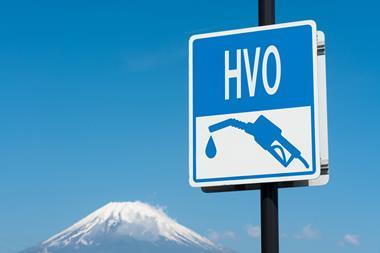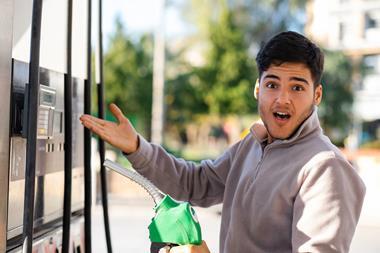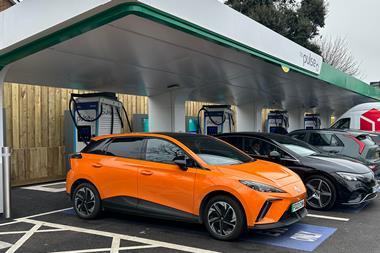Petrol filling stations up and down the country have helped to keep the nation’s emergency services working during the coronavirus lockdown, despite facing some major challenges. Keeping sites open has been vital to provide the fuel for emergency service staff to get to work, and to maintain deliveries to hospitals, care homes and supermarkets.
But, with the vast majority of cars off the road, many dealers are reporting fuel volumes down by 75-80% compared with the average before the lockdown. And while some are seeing extra shop sales, this too is a double-edged sword as they are struggling to fill shelves as their usual suppliers battle shortages.
One of the strengths of the dealer sector, however, is its adaptability the way entrepreneurs running their own businesses can quickly wheel and deal to cope with a rapidly changing situation. Retailers have been introducing safety measures to protect staff and their customers, and extra services to provide support to some of the most vulnerable people in our communities.
A typical example is Gardner Garages, which has four Texaco filling stations at Huntley, Cheltenham, Gloucester, and Hereford and a BP site in Salisbury. Managing director Emma Gardner said fuel volumes across the business have been down about 80% since the lockdown. This has been partly offset by an increase of about 25% in sales through its five Londis stores, but she added: "It helps, but profit wise we are looking at less than if we sold the fuel."
Shopping patterns have also changed radically with food to go falling off a cliff, but a huge increase in demand for groceries. With gaps appearing on the shelves and Londis struggling to fulfil orders, Emma has turned to local suppliers, such as a bakery, which has been able to provide flour and tinned tomatoes.
Maintaining staff levels has been another headache. Some staff had to be furloughed, because they were in the shielding category, and two have been confirmed with the virus.
Immediately after the lockdown the business reduced the hours at its Huntley store, and cut back late night staffing at its other 24-hour sites, but after four weeks Huntley was so busy it had to revert to its original hours and the other sites are now back to their full staffing. Protection measures were introduced in the stores with screens at all the tills, hand sanitisers, gloves and masks for staff, and distancing guidelines on the floor.
smaller loads
Emma praised Texaco for its support. She said: "Rather than delivering full loads which we didn’t need 38,000 litres of fuel that would have taken two weeks to sell they were giving us a smaller load, and this has helped cash flow. They also provided POS regarding the new contactless limits and some social distancing posters."
At Murco-branded White Horse Service Station, in Middle Wallop, about five miles from Andover in Hampshire, Jeanette Cook has seen a similar plunge in fuel volumes with levels down about 75% since the lockdown. But she has been less fortunate than Gardners with shops sales, with takings at her 2,300sq ft Budgens store also down by about 15%. She explained: "We are right next to an army camp and would usually get a lot of trade from there and from the civilian staff travelling to work at the camp, but it’s not open at the moment."
Describing the build up to the lockdown, she said: "Business was chaotic just prior to it, then it died a death after the first week." She has had to cut opening hours.
Again protection measures are in place with markings on the floor and a flow chart to ensure distancing between customers. There is someone on the door limiting customers to three at any one time and there is hand sanitiser as they come in. There are screens by the tills, and staff have gloves and a choice of mask or visor. Outside the store there is a queuing system with barriers so customers come in from one direction and go out in the opposite direction.
deliveries for the vulnerable
Deliveries have also been introduced for people who are self isolating and the elderly. Jeanette said: "We are a family business and we have been here a long time 57 years and the family members go out and deliver and we are getting nice feedback from customers saying they couldn’t manage without us."
One of the factors she singles out as having helped the business is the flexibility shown by Murco. She said: "I couldn’t ask for better support from Murco. I don’t like having very small loads normally but nowadays you can’t afford to keep the money underground."
Further north, in East Yorkshire, Sewell on the go has moved quickly to use space in its stores freed up by the temporary closure of its Subway units, working with another local family-run company to offer fresh fruit and vegetables to its local communities. Sewell on the go managing director, Patrick Sewell, explained: "We had three Subways integrated into our stores, but after the government advice we decided to close all of the Subways on the Monday it happened straight away; it was almost zero hours notice. But obviously everything was evolving day to day."
The company has links with local fruit and veg specialist Coyle & Sons, and contacted them to see if there was an opportunity. Patrick added: "In typical style, we met with them a couple of hours later. It was literally Tuesday morning and we had fruit and veg stalls in place. We’ve gone from not trading with them at all to having five sites set up."
As the lockdown begins to ease there will be more challenges for businesses, but dealers can be relied on to find ways to keep their vital services available to their communities.
Motorway services supporting truckers
Motorway services operators have been hit particularly hard by the lockdown as the majority of passing trade has dried up. Moto has had to furlough 3,000 of its 5,000-strong workforce, but is keeping all of its 46 sites open in order to support the transport sector.
Moto CEO Ken McMeikan told Forecourt Trader: "It’s not been like the panic buying at the supermarkets, it’s been the reverse." Traffic was down around 65% on weekdays, compared to usual levels, with Saturdays down 80% and Sundays usually our busiest day of the week down 85%. Fuel volumes have been down by similar amounts.
He said: "One of the unsung heroes during the coronavirus challenge has been the HGV drivers as they are moving food, medicine and other essentials around the UK, and if anything working longer hours. Therefore, we thought the part we can play is to try and find a way we can keep our facilities open for them."
Moto is operating a free food scheme for drivers staying overnight, available at 24 of the sites that are most popular with truck drivers.

































No comments yet